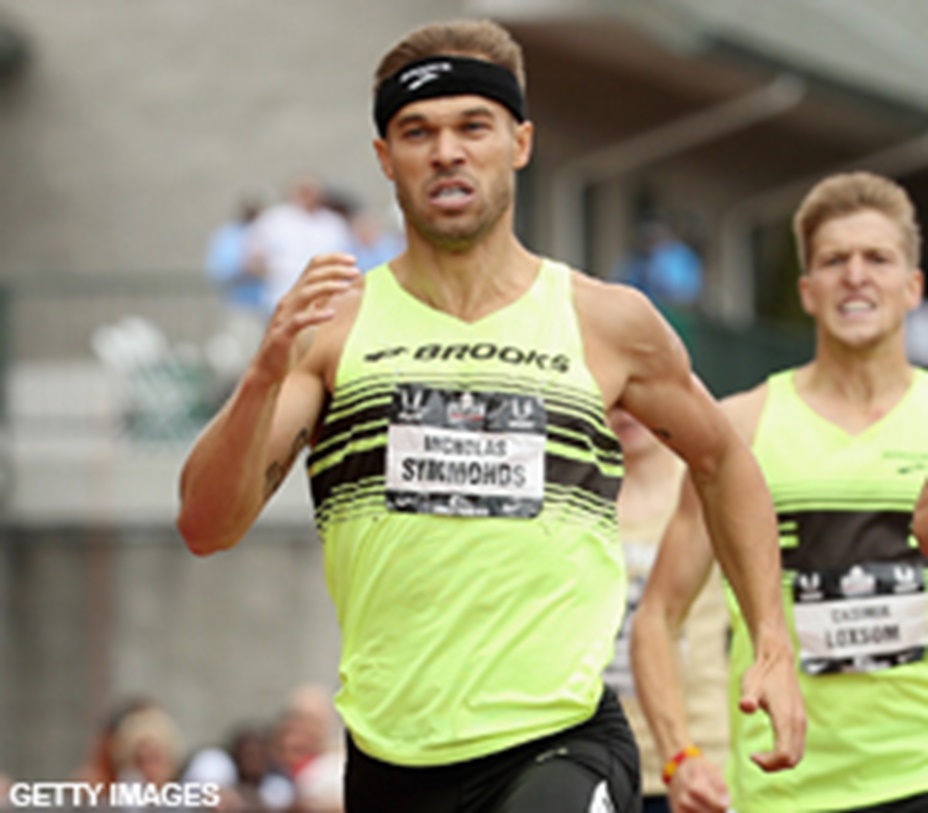USA Track & Field said that the requirement for U.S. athletes to wear Nike-branded apparel at the IAAF World Championships in Beijing "is not all-encompassing, and team members with sponsors other than Nike can wear their sponsor’s gear on many occasions during the meet," according to Peter Gambaccini of RUNNER'S WORLD. USATF Chief Public Affairs Officer Jill Geer "made those clarifications after six-time national 800-meter champion Nick Symmonds refused to sign USATF’s 'Athlete Statement of Conditions' and was left off the team for Beijing." In presenting his case, Symmonds "displayed a letter USATF sent to prospective team members that was meant to supplement the separate Statement of Conditions." The letter read in part, "Please pack ONLY Team USA, Nike or non-branded apparel." Geer said that USATF's senior management "didn't know about the letter until it was sent, and doesn’t plan to enforce it in Beijing." Geer said no one "on the executive team was aware of the letter" before it went out to athletes. She added that she was "stunned when she first saw it," and that it was "written by a lower-level staff member." Symmonds acknowledged that USATF "told him they would not enforce the restrictions implied in the letter." But he added that the "crucial issue for him remained the lack of clarity on 'team function'" (RUNNERSWORLD.com, 8/14).
MAKING A RUN FOR IT: In N.Y., Jere Longman wrote Symmonds' dispute "raises questions about how much control a federation and its chief corporate sponsor ... should have over the ability of professional track athletes to earn livings and to make as much money as they can through their own endorsements." The conflict also "illuminates the uneasy transition that track and field has made from amateur to professional status." Athletes are "not unionized, are not governed by a collective bargaining agreement and perform as independent contractors." Symmonds declined to discuss his yearly income in detail, saying that he "had nondisclosure agreements" with Brooks Running and sports-watch maker Soleus. But he did "offer a rough estimate of his earnings," disclosing that only 3% comes from USATF while more than 75% comes from corporate sponsors. Symmonds said that without his personal sponsors, he "would not have been able to sustain a career as an elite national and international athlete." Symmonds: "Sometimes people watch the Olympics and think we’re still amateurs. This is not a hobby. I’m the chief executive of my own company. This is my career, my job. I have to make sure I protect my contracts with my partners." Longman noted the very structure of Olympic-related federations like USATF "ensures conflicting interests and some level of incessant dysfunction and dispute." USATF is responsible for "governing the sport from the grass-roots level to the Olympic level." The rights of pro athletes "are but one aspect of a broad, often unwieldy agenda." U.S. shot putter and Track & Field Athletes Association VP Adam Nelson: "You build a professional model on amateur rules, and you get a bastard sport. Athletes’ voices are removed from most major decisions" (N.Y. TIMES, 8/16).
MORE TO COME: SPORTSBUSINESS JOURNAL's Ben Fischer reports experts "expect Symmonds to eventually be just one of many skirmishes on the topic" of athletes' rights heading into the '16 Rio Games as athletes "demand a bigger share of the Games’ expanding business opportunities." As the Symmonds-USATF feud illustrates, rising sponsorship fees across all sports "have caused official partners such as Nike to be more demanding about maximizing their rights, while also causing athletes to be more aggressive in carving out what ground they can control and protecting their own sponsors." Meanwhile, social media "has grown more powerful since Olympians first used Twitter to build public support for their complaints" during the '12 London Games, allowing them to "build a brand independent of their sport’s institutions." DC-based law firm Hausfeld LLC Partner Sathya Gosselin said, "I think we’re at a flashpoint for athletes’ rights, and particularly among Olympians as we look forward to the next Olympic Games" (SPORTSBUSINESS JOURNAL, 8/17 issue).




